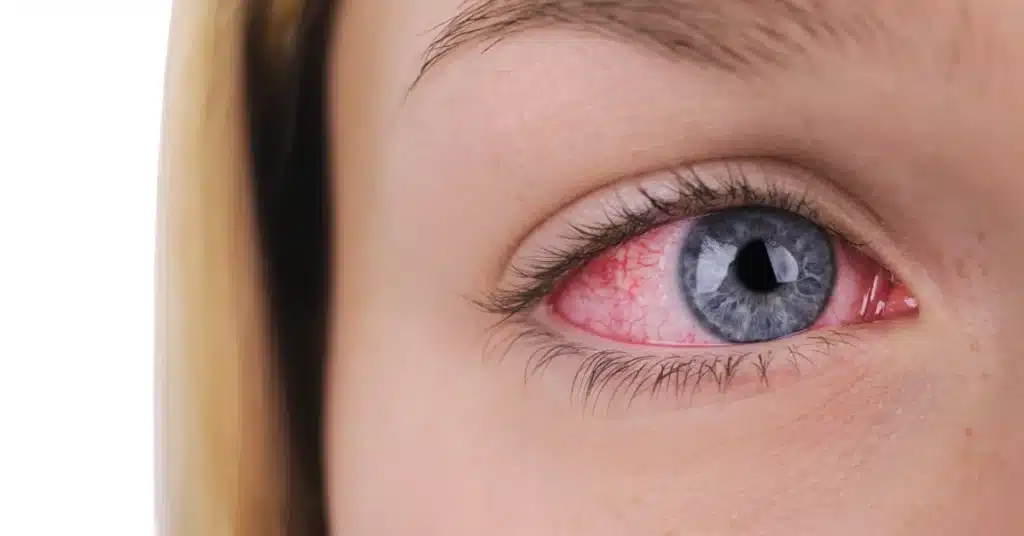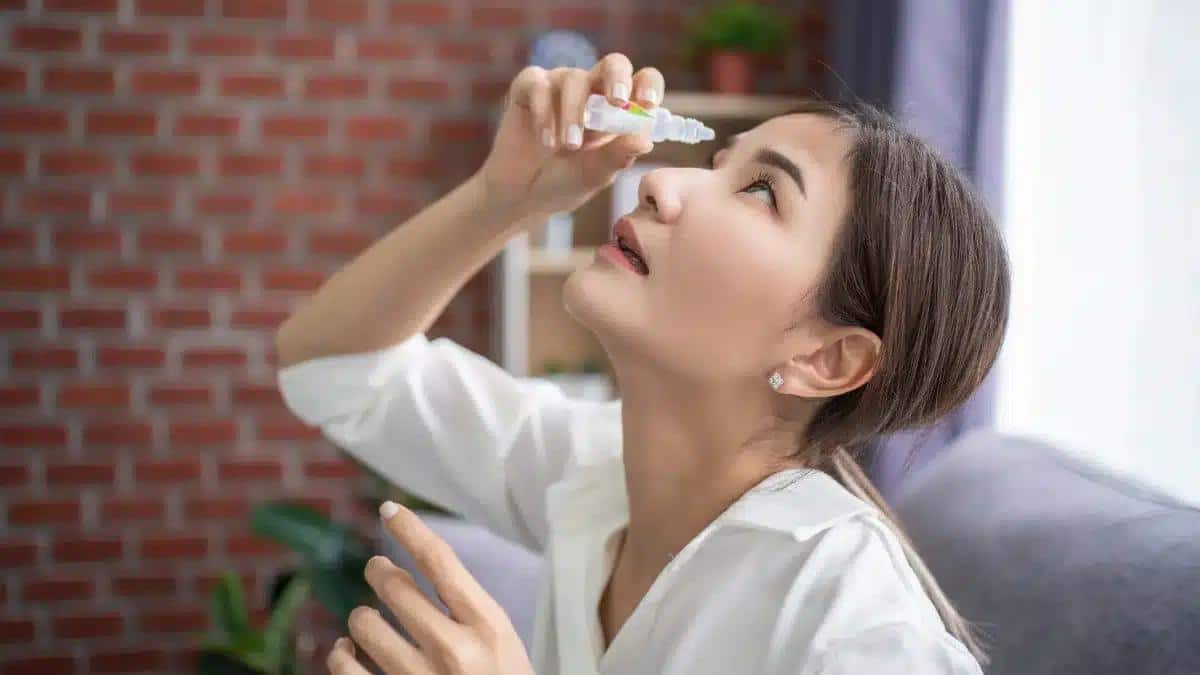Glaucoma, an eye condition that progresses gradually, often requires treatment with eye drops.
These eye drops manage intraocular pressure (IOP), responsible for optic nerve damage.
This condition affects vision and worsens over time if left untreated.
Due to this, managing Glaucoma with eye drops is essential. However, these eye drops are only available with a prescription, as they can have side effects.
This article discusses the common and rare Glaucoma eye drops side effects, exploring the different complications of various Glaucoma medicines.
Common Glaucoma eye drops side effects
Eye drops for Glaucoma are crucial in managing eye pressure and preserving vision.
However, like any medication, they can come with potential side effects.
The common Glaucoma eye drops side effects include eye irritation, redness, blurred vision, and dry eyes.
These side effects are usually not a cause for concern as they are mild and temporary. However, it is essential to be aware of them to use the medicine safely.
Let us discuss the side effects of Glaucoma eye drops:
Eye irritation and discomfort
According to the American Academy of Ophthalmology (AAO), eye irritation is one of Glaucoma eye drops’ most common side effects.
When using Glaucoma eye drops, individuals may feel a temporary stinging or burning sensation.
This sensation does not last long and is usually not a cause for concern.
Redness and tearing
It has been reported by the Glaucoma Research Foundation that redness and tearing are common after using eye drops.
Users may experience temporary redness of the eyes or increased tears.
This side effect is typically not harmful and often decreases over time.
Blurred vision
 Source: zoranm_from_Getty_Images
Source: zoranm_from_Getty_ImagesThe National Eye Institute lists blurred vision as a typical side effect of Glaucoma eye drops.
Some individuals may experience momentary blurriness immediately after application.
It is a commonly observed side effect that usually resolves quickly.
Want to know more about blurry vision and Glaucoma? Read our article: Does Glaucoma Cause Blurry Vision? Know the Facts
Dry eyes
Dry eyes are a potential side effect of Glaucoma eye drops.
This condition may cause discomfort, itching, and a gritty eye sensation.
Discussing with an eye care specialist is essential for appropriate management in case of persistent dryness while using Glaucoma eye drops.
Rare side effects of Glaucoma medicines
 Source: Alajsdfas
Source: AlajsdfasGlaucoma eye drops can cause changes in iris color and eyelash thickness, systemic side effects, and allergic reactions.
However, these side effects are extremely rare and do not affect most people who take these medicines.
The rare side effects of Glaucoma eye drops are as follows:
Changes in iris color: Some Glaucoma medications can darken the color of the iris, especially in people with lighter eyes.
Changes in eyelashes and skin: Glaucoma medications can cause changes in eyelash color, length, and thickness and affect the skin around the eyes in rare cases.
Systemic side effects: Some medications can be absorbed into the bloodstream and cause changes in heart rate, breathing difficulties, or changes in blood pressure.
Allergic reactions: Some people may have allergies to certain ingredients in Glaucoma medications, causing eye or eyelid symptoms like itching, redness, or swelling.
Learn how Glaucoma eye drops can affect your eye color. Read: Can Bimatoprost Cause Eye Color Changes? A Comprehensive Guide
Differences in side effects of common Glaucoma medicines
Based on the type of Glaucoma, the medicines for this condition can be classified into various groups.
Each class of Glaucoma eye drops has different benefits and risks. As a result, the side effects of each medicine vary.
Let us compare the side effects of each class of Glaucoma eye drops:
| Class of medicine | Common Glaucoma medicines | Common side effects | Rare side effects |
|---|---|---|---|
| Prostaglandin Analogs | Latanoprost (Xalatan)Bimatoprost (Lumigan) | Eye redness, stinging, darkening of iris | Changes in iris color, changes in eyelashes and skin |
| Beta Blockers | Timolol (Timoptic)Levobunolol (Betagan) | Eye irritation, burning, blurred vision, redness | Systemic effects (e.g., heart rate changes, breathing difficulties) |
| Alpha Agonists | Brimonidine (Alphagan)Apraclonidine (Iopidine) | Eye redness, dry mouth, fatigue | Allergic reactions, systemic effects |
| Carbonic Anhydrase Inhibitors | Dorzolamide (Trusopt) Brinzolamide (Azopt) | Eye discomfort, bitter taste, blurred vision | Allergic reactions, systemic effects |
| Cholinergic Agonists | Pilocarpine (Isopto Carpine), Carbachol | Brow ache, blurred vision, nearsightedness | Systemic effects (usually in high doses) |
| Rho Kinase Inhibitors | Netarsudil (Rhopressa) | Eye redness, stinging, blurred vision | Allergic reactions, systemic effects |
| Miotic Agents | Echothiophate (Phospholine Iodide) | Eye pain, tearing, sweating | Systemic effects, especially in high doses |
Takeaway
The common Glaucoma eye drops side effects include eye discomfort and pain, redness, tears, blurriness, and dry eyes.
In rare cases, individuals may also experience changes in eye color, eyelash growth, systemic side effects, or allergic reactions.
Understanding the potential side effects of Glaucoma eye drops is important in managing your eye health.
Regular communication with your eye care professional and following their recommendations will help ensure effective and comfortable treatment.
Frequently Asked Questions
Can Glaucoma eye drops damage your eyes?
When used as directed, Glaucoma eye drops are generally safe. However, incorrect usage or allergic reactions can result in potential harm. It is important to follow your doctor’s instructions.
How can I reduce the side effects of Glaucoma drops?
You can reduce the side effects by applying drops correctly, using preservative-free formulations, and immediately reporting any discomfort to your doctor for adjustments.
Which eye drops for Glaucoma have the least side effects?
Consult with your doctor to determine which Glaucoma eye drops may have fewer reported side effects for your specific situation.
Are side effects from Glaucoma eye drops permanent?
Many side effects are temporary and typically go away shortly after use. If you encounter persistent problems, you must seek guidance from your eye care professional.
Can Glaucoma eye drops affect the color of my eyes?
Certain eye drops may darken the iris, especially in people with lighter-colored eyes. Discuss eye care questions or issues with your provider.
When referencing outside resources, GoodrxMedicine always provides full citations. To learn more about the measures we use to maintain the quality of our content, please review our Content Information Policy.











